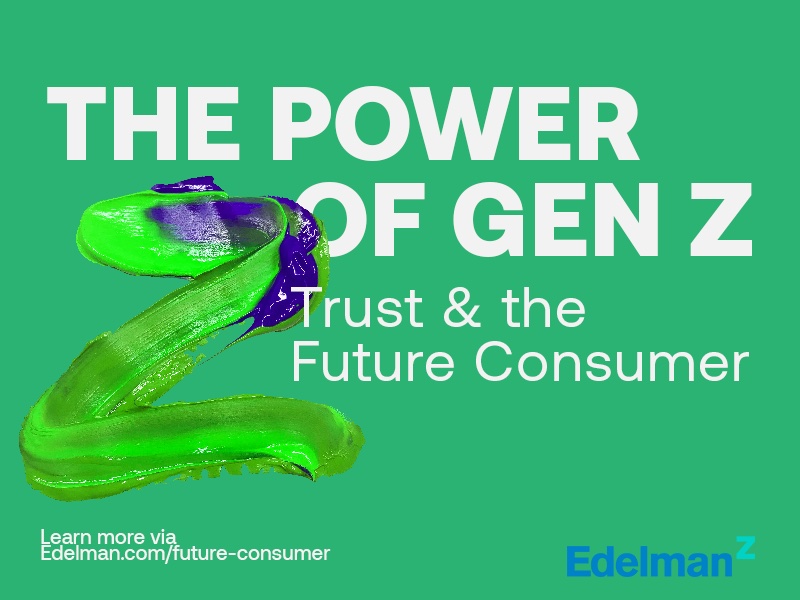Diana Marszalek 15 Dec 2021 // 9:34PM GMT

NEW YORK — New research from Edelman shows we may have been reading Gen Z wrong.
The survey of 9,600 respondents ages 14-24 in six markets (China, France, Germany, Mexico, the UK and US) found that members of that population aren’t looking to be influencers or cancel brands. Nor do they see TikTok as the utmost in social media.
Rather, safety and security are top of mind for Gen Z, and even more so since the Covid pandemic, the study found. They believe in responsibility, accountability, truth and humanity.
“So much uncertainty has been swirling around this generation in our industry — and worse — a great deal of preconceived notions,” said Jackie Cooper, Edelman’s chief global brand officer. "When it comes to Gen Z being self-obsessed, sensitive, and aspirational influencers the industry was greatly mistaken."
“The data in our new report paints a much different picture. This is an incredibly pragmatic generation concerned about their personal safety first and foremost. "They desire the reassurance of the basics and are making sensibility the new standard. They are inspired by the relatable not the unattainable," Cooper said.
Specifically, the Power of Gen Z study found only 12% of respondents want to be influencers, and one in three say want brands to be accountable not cancelled. Brands that take responsibility for wrongdoing can keep their trust.
Sixty-six percent said sharing information is a form of activism, and it’s what they do the most. YouTube is Gen Z’s most trusted platform, while TikTok ranks fifth; Forty-five percent of respondents believe technology is not the solution to most problems.
The report showed Covid’s impact on Gen Z, too, particularly around an exacerbated concern for their own health and safety.
“We were astonished to see that 68% of Gen Zers are already saving for future healthcare expenses. Sixty-nine percent have changed social circles in order to feel safe,” Cooper said. “What changed is that this generation, having witnessed the effect of the last two years on their friends and family, has grown up very fast.”
They also are choosing low risk activities (75%), believe in the value of education (81%) and include financial stability among their career goals (79%).
And they expect a lot of brands, which they believe should use their reach, money and scale to create change. Nine out of 10 respondents want the brands they buy to get involved in causes that improve the world.
Brands also must be truthful. Seventy percent of respondents said they always fact check brands’ statements and will unfollow any brand that’s not telling the truth. For brands, earning Gen Z trust includes making them feel safe, supporting their mission to unite for change and taking care of people.
But the real test for brands is in how they treat their people, the study found. Eight in 10 respondents said they consider brands’ treatment of employees in their purchasing decisions. Seven in 10 evaluate a company’s work helping those in need when considering whether to work for it.
“There are lots of fun, flashy, fashionable aspects of Gen Z that I think brands are naturally drawn to, but the reality we see in the report is that first, Gen Z just wants their basic needs met,” Cooper said. “They want to feel safe and secure and build trust for the brand. Gen Zers are truth seekers so brands need to make sure their transparency is discoverable. They need to be factual and authentic, otherwise Gen Z will sniff it out.”


































.jpg)


















